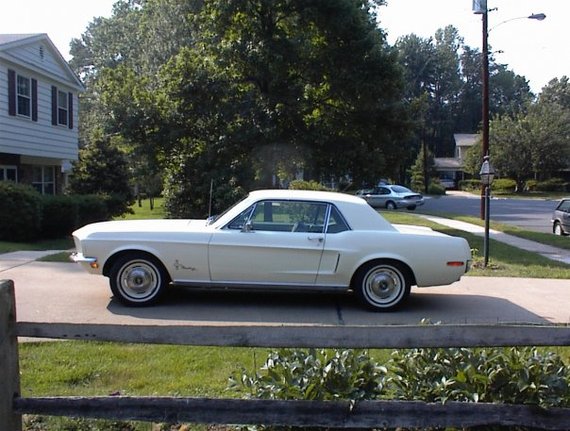Generally it is hard to see a 'tipping point' until it has past and people have the ability to look back and see when 'everything' changed. Often there is not one single moment but a series of events that combine to transform industries and our world.
The announcement that Volvo, Google, and Mercedes-Benz were prepared to accept the liability for accidents of their self-driving cars is that kind of transformational moment.
Why? Because by removing this legal barrier they shift the industry away from what it makes (cars) to what it does (provide individual transportation). I have argued before that this mindset change is at the root of company's value proposition, but in this case it is truly disruptive because now they have ushered in a fundamental - and transformational - shift that threatens the production-based auto industry as we know it today.
Our economy - and the auto industry is no exception - is based on an 18th century model, a "production" model where profit is inextricably linked to a company's ability to provide as many of something as possible at the lowest cost.
Just as companies that saw themselves as in the energy business were more able to shift to other sources of power than those that thought of themselves as coal companies, the future may favor those companies that consider their business model to be the transportation - and not the automobile - industry.
Production based companies are used to 'power buying' and long-term contracts to reduce costs. They are adept at exploring and exploiting production efficiencies that further reduce the costs to produce their goods. This "increase scale to meet demand and lower costs" goes out the window if companies shift their business model is no longer to meet the need for individual ownership of vehicles but rather to provide transportation that meets individual needs the traditional business drivers are usurped and they will then have to compete on whole new metrics such as their ability to provide the transportation more quickly, most cheaply and more safely.
And the disruption will not be limited to auto manufacturers - who have built a product that (a) loses value the instant ownership is engaged (b) sits idle more than 90% of the time. The reduced demand for individual units of vehicles will also have a massive impact on all of the support industries that are currently also based on production models. We'll need fewer brake pads. We'll need fewer windshields. We'll need fewer batteries, safety belts, light bulbs, etc. than ever before as the industry shifts away. Between Millennials who have no desire to own a car to emerging economies that may never embrace owning one's own car as a rite of passage into independence and adulthood.
Make no mistake - since the auto industry is a large portion of some of the world's largest economies, the ripple effect will be huge, undeniable and irrevocable. And for those who cannot adapt, this is exceedingly bad news. Just as the buggy whip manufacturers lost out when the automobile replaced the horse-drawn carriage, those industries will either evolve quickly or perish.
But those who build their business to support and provide elements that support the new 'shared auto' economy - the Ubers of the future - are poised for success as they'll be able to provide their services to more people (the young, those living with handicaps that prevented them from driving and the elderly who long longer can). History also teaches us that those new companies will have a far easier time of it than those who have to unwind (and not cling to) their 'old' way of doing business.

